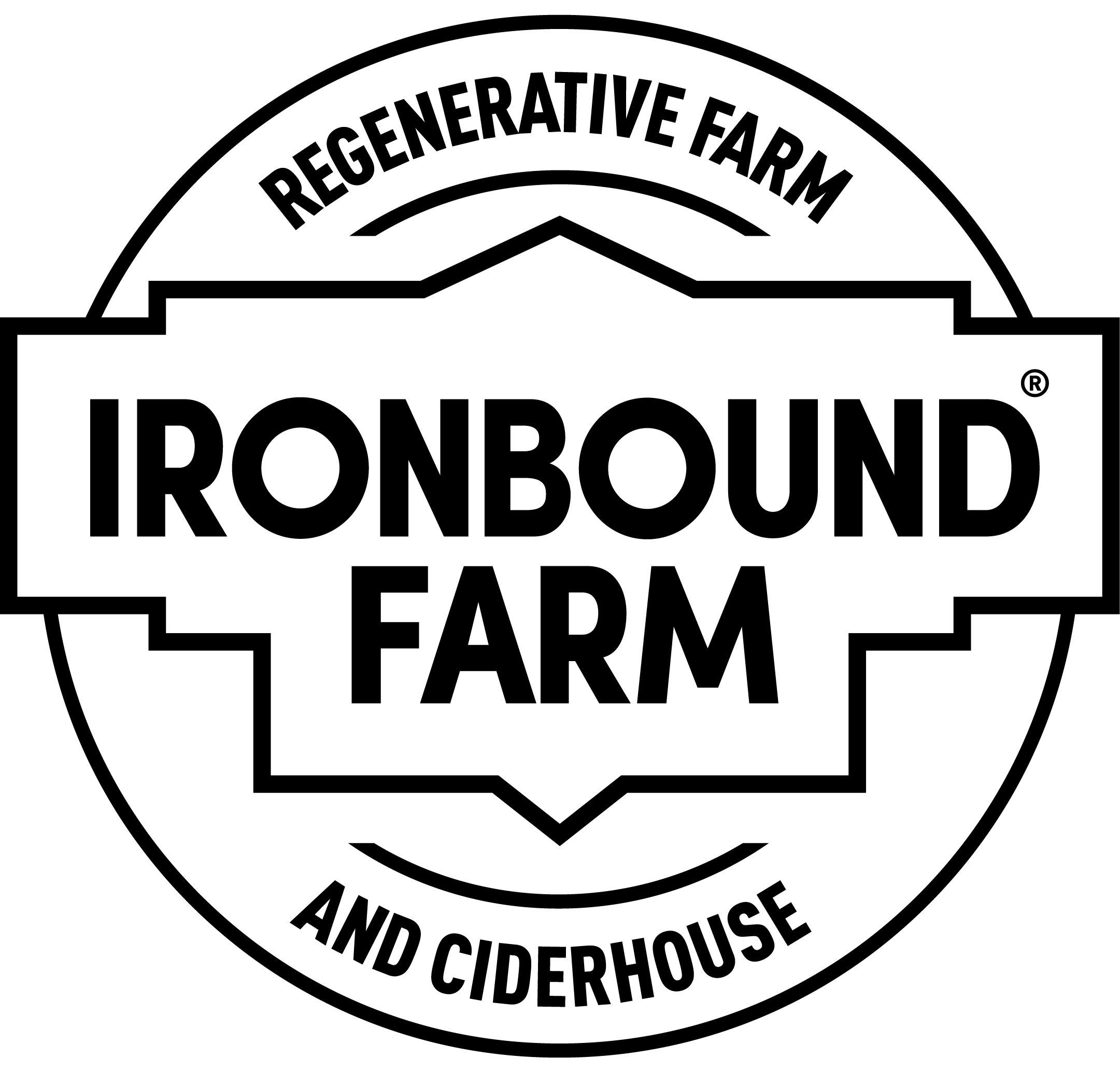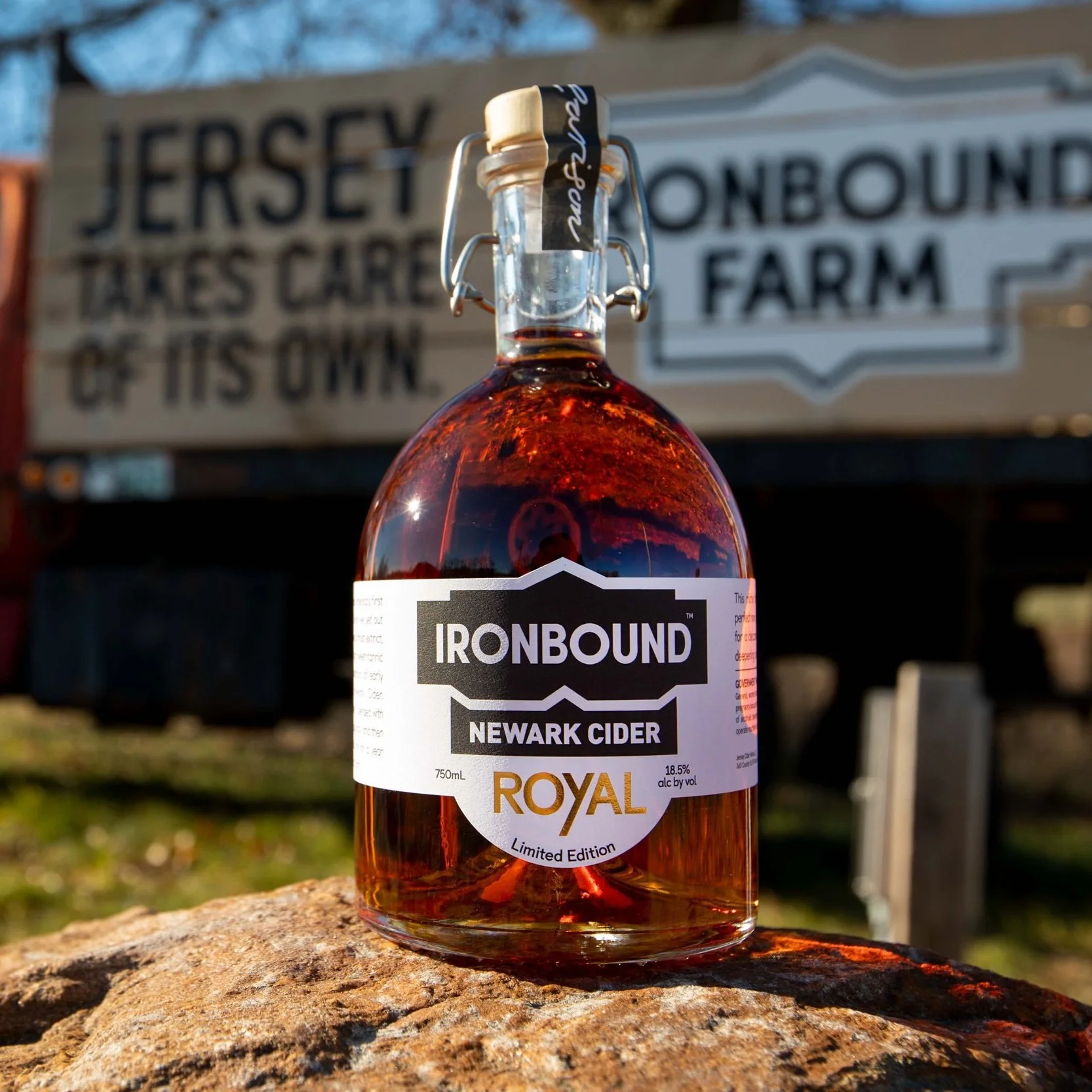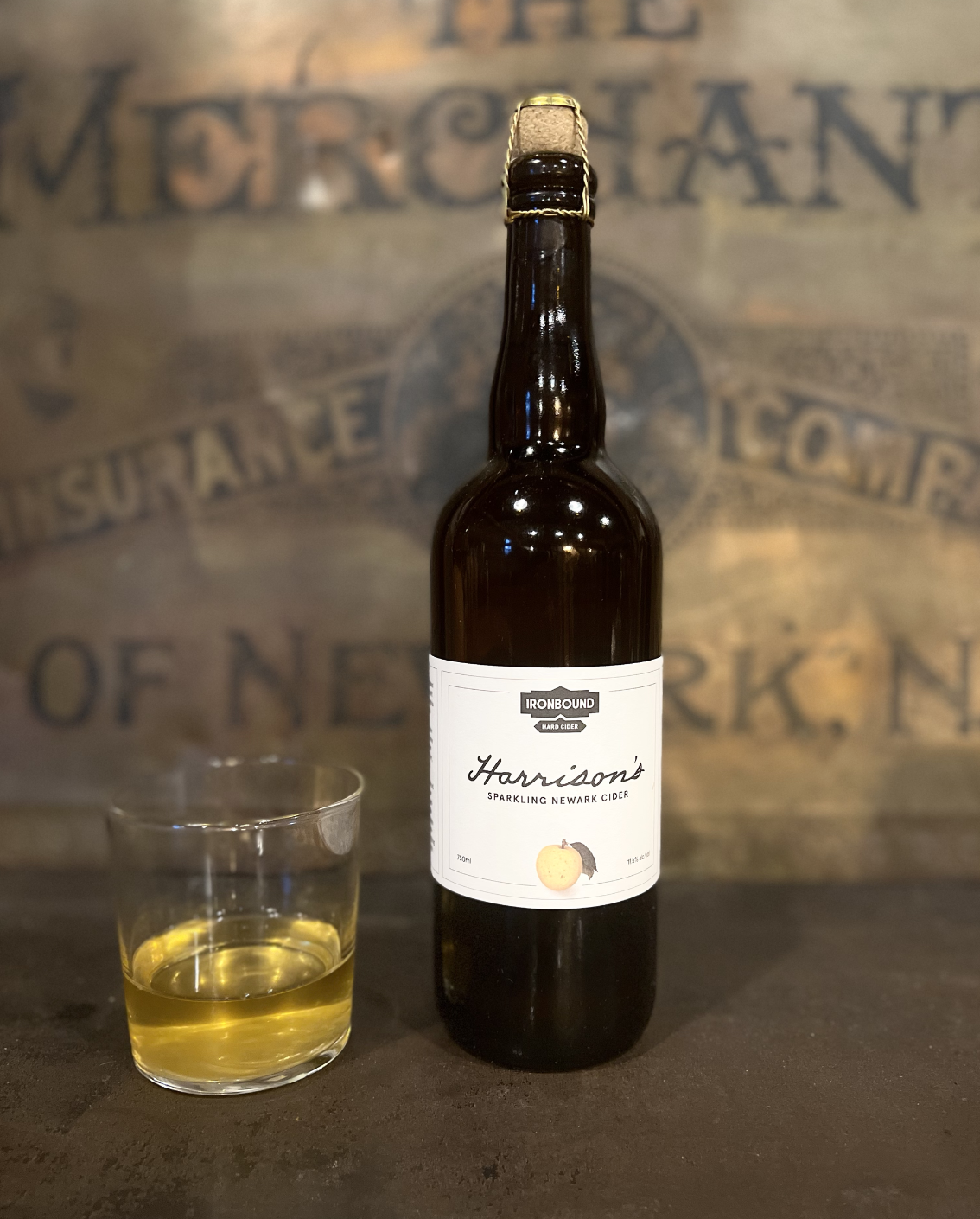Harrison Apple Cider
Long before the labor of skilled brewers, leatherworkers, and silversmiths made Newark a 19th century industrial powerhouse, it was cidermakers who helped fuel that city’s first industrial phase. Every fall, apples from the great cider orchards of East Jersey were delivered to cider presses in Newark where they were processed into juice—much of which was made into Newark Cider, the most celebrated cider of its day, or fermented and distilled to make applejack, Jersey’s iconic apple spirit.
Newark Cider was made from a variety of apples, which reflected the natural annual variations in apple crop quality and yields, as well as the preferences of each cidermaker. The most highly prized Newark Cider, however, was made from the Harrison apple, a small yellow apple that originated in Newark in the early 1700s and was beloved for its rich, flavorful juice. The Canfield, another celebrated Newark apple, was often combined with the Harrison, as was Newark’s Graniwinkle apple—both blends producing ciders that were lauded for their superior quality in the early 19th century.
Like many regional American apples, especially those used primarily for cider, the Harrison disappeared from cultivation with the early 20th century rise of urbanization, the commodification of the apple industry, and the arrival of Prohibition. It was thought to have been lost, and possibly extinct, until a lone Harrison tree was rediscovered in 1976 in Livingston (NJ) by Vermont apple hunter, Paul Gidez. Since that discovery, scion wood from trees originating in Gidez’s Harrison orchard has been distributed to farmers throughout the country, much of it being given to small-scale orchardists by the late Tom Burford, one of the world’s foremost authorities on historic American apple cultivars.
It was through Burford that Charles Rosen, founder and CEO of Ironbound Farm in Asbury, received his first 100 Harrison trees, which became the foundation for the cider orchard that supplies Rosen’s Ciderhouse at Ironbound Farm. In addition to the now hundreds of Harrison trees at Ironbound Farm, Rosen gave 2,500 young Harrison trees to DeFisher Fruit Farms in Williamson, NY—enabling Rosen to support other family growers, test how regional differences in growing conditions impact flavor, and gain a hedge against possible crop loss due to extreme weather.
Upon first tasting the Harrison apple, Ironbound’s cider maker, Cameron Stark, remarked that “to date it is the most complete apple juice that I have come across.”—referring to the apple’s high sugar levels, non-bitter bite, and full mature tannins that add richness to the mouthfeel. In 2021, the Harrison trees at Ironbound Farm and DeFisher Farms yielded their first significant harvest—allowing Stark, an award-winning winemaker trained and mentored by Napa legends Bob Levy and Robert Sinskey, to create a trio of Harrison products with distinctive flavor profiles and storied pasts.
Ironbound Newark Cider
10.1% ALC/VOL
12 oz cans.
To create their modern version of Newark Cider, Ironbound uses a blend of three 18th century Newark apples: Canfield, Graniwinkle, and the legendary Harrison—a tiny, bold, and surprisingly complex apple that was the pride of Newark’s 19th century cider industry. Ironbound has been instrumental in returning these rare, historic apples to orchards in and around the Garden State, helping to ensure their survival and allowing Ironbound to reintroduce the long-lost flavor of Newark Cider to the American table. Historically, Newark Cider changed from year to year due to minimal handling, native fermentation, and seasonal variations from harvest to harvest. Ironbound honors those traditions in this aromatic dry cider that carries notes of pear and peach, giving way to a long, clean finish with just a hint of vanilla.
Newark Cider Royal
18.5% ALC/VOL
750 ml
Three hundred years before barrel-aged cocktails became a fixture in bars, American colonists were already fans. To add heft and richness to their beloved hard cider, farmers fortified it with applejack and then barrel aged these two iconic Jersey products to create Cider Royal—America’s first cocktail. In reviving this early American tavern staple, Ironbound blends naturally fermented, pure Harrison cider with applejack, which is then barrel aged for a year in toasted oak, melding the flavors while adding complexity and depth. The result is a creamy, mouth-filling elixir with aromas of fresh-crushed apples and just-sawn oak, and the flavor of crisp new apples balanced by brilliant acidity, refined tannic structure, and a long, sublime finish. Perfect to serve now, Newark Cider Royal can also be aged for 10 to 15 years, allowing it to soften and deepen over time.
Harrison’s Sparkling Newark Cider
11.5% ALC/VOL
750 ml
When writing about his travels the US in 1846-47, Scottish born journalist, Alexander Mackay, recounts that “Many is the American connoisseur of champagne, who has his taste cultivated on Newark cider”—an observation that was reinforced by a New Yorker he met who referred to Newark as “the great champagne manufactory of America.” Ironbound honors that long tradition of quality with this single-varietal sparkling cider made from 100% Harrison apples—a rare New Jersey heirloom that delivers a perfect trifecta of tart, sweet, and tannic. A rustic traditional (pét-nat) bottle fermentation creates a complex, well-structured, naturally sparkling cider with notes of pear and tangerine—and just a hint of funk—giving way to a long, clean finish.






